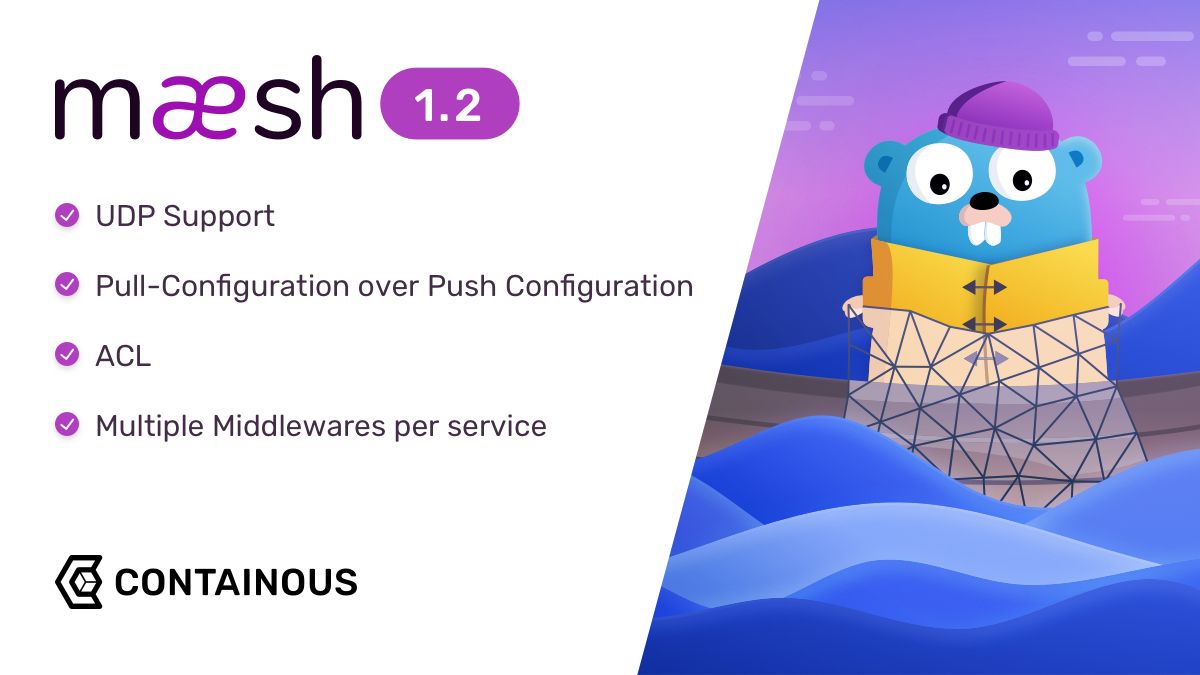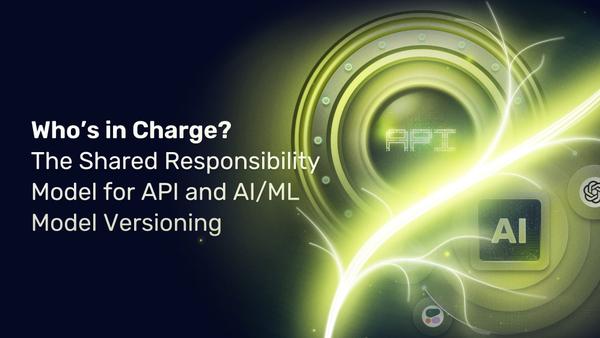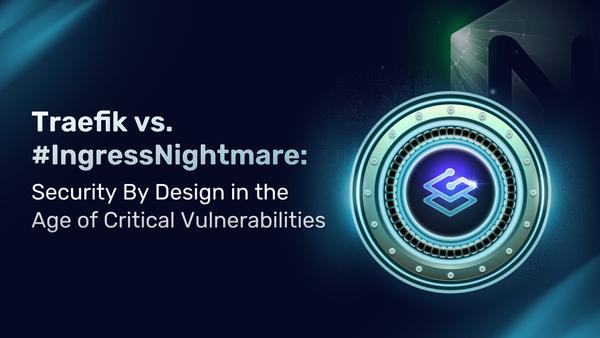Announcing Maesh 1.2
Now with support for UDP, reworked ACL, and a more efficient installation!

In early March, we proudly announced the general availability of Maesh 1.1. Now, less than 3 months later we’re proud to introduce Maesh 1.2, the latest release of our simpler service mesh. This release brings new additions such as UDP support and enhancing our internal architecture to provide more flexibility and performance in large deployments.
UDP Support
As you probably know, Maesh is built on top of Traefik, our popular Cloud Native Edge Router. Traefik introduced UDP support with the release of version 2.2 in early March, and as a result, Maesh is now able to handle UDP connections as well.
The only thing you need to do is modify your "maesh.containo.us/traffic-type" annotation and set it to udp.
---
apiVersion: v1
kind: Service
metadata:
annotations:
maesh.containo.us/traffic-type: udp
labels:
app: my-udp-service
name: udp-service
namespace: test
spec:
ports:
- port: 8080
protocol: UDP
selector:
app: my-udp-service
That’s it! Maesh will now proxy the UDP protocol to that service.
Pull over Push Configuration
As a result of the architectural change mentioned above, we were able to improve the way our proxy nodes ingest configuration.
Prior to this release, the Maesh Controller pushed the current dynamic configuration to the proxy nodes. Of course, this solution was not optimal as it eventually resulted in longer deployment times and became a bottleneck in large clusters.
We’ve changed the configuration to a pull based system, so instead of waiting for a push, the custom nodes will pull the configuration from the controller.This change improves both performance along with stability, and makes the deployment of configuration not only more efficient but much easier.
ACL as a feature
Maesh was designed from the ground up to be SMI compliant. Therefore, we initially had a CLI flag to configure Maesh called --smi. This would set Maesh into the SMI Mode which made it possible to make use of TrafficSplits or ACL.
As a side-effect you were unable to use the retry annotation together with SMI because internally the two modes were incompatible.
To change that, we have reworked how Maesh discovers services. Maesh will now build an internal topology of every deployed service, including *nested TrafficSplits* through the SMI specification.
Additionally, if you want to use ACL (TrafficTarget in SMI) you may now activate the ACL flag --acl similar to how you could activate the SMI flag before. Doing so, will activate the ACL feature on Maesh without impacting the SMI mode.
Multiple Middlewares per service
Last but not least, we also enhanced the handling of the annotations on your services. It is now possible to combine middlewares, for example the retry-attempts with the rate-limiter to better control your services.
---
apiVersion: v1
kind: Service
metadata:
annotations:
maesh.containo.us/retry-attempts: 2
maesh.containo.us/ratelimit-burst: 200
labels:
app: my-udp-service
name: udp-service
namespace: test
spec:
ports:
- port: 8080
protocol: UDP
selector:
app: my-udp-service
This configuration activates the retry feature and Maesh will simultaneously try to proxy the request twice in case of a network error and activate the rate limiting for that service.
New Helm Major Version
As a result of all the architecture changes mentioned above, we needed to enhance the Major Version of our chart as we had some helm breaking changes. For assistance while upgrading your installation, please see here.
What’s Next
We’re just getting started. Work is underway to implement some of the most requested features into Maesh, including End to End encryption. Of course, this is only made possible by you, an awesome community, which provides us such valuable feedback that we’re able to define an exciting roadmap for a product you’ve helped us build.
Please don’t stop contributing, either in PR’s or just raising issues. For us it matters a lot.
Thank you!



